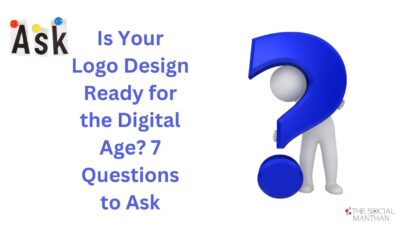Authenticity is at the heart of effective branding. As a CEO or entrepreneur, I know that establishing a strong personal brand can significantly influence your business success and help you connect with your audience. In this post, I’ll share practical tips and insights to help you define and amplify your personal brand, allowing you to stand out in today’s competitive landscape while staying true to your values. Let’s dive in and explore the steps you can take to build a reputation that resonates with others!
Key Takeaways:
- Define your unique value proposition: Clearly articulate what sets you apart in your industry and how your personal values align with your business goals.
- Engage authentically on social media: Leverage platforms like LinkedIn and Twitter to share insights, connect with your audience, and showcase your expertise consistently.
- Build a strong network: Actively seek connections with other leaders, mentors, and communities that can amplify your brand and open up new opportunities.
Crafting Your Unique Narrative
Creating a compelling narrative goes beyond just recounting your journey. It’s about weaving together your experiences, values, and aspirations into a story that resonates with your audience. Your unique narrative should reflect the essence of who you are as a CEO or entrepreneur, showcasing not just your successes but also the hurdles you’ve overcome. Think of this narrative as a roadmap that guides your personal brand, making it relatable and authentic.
Identifying Your Core Values
Your core values are the guiding principles that define you. They influence your decisions, actions, and interactions. Take time to reflect on what truly matters to you and what you stand for in both your personal and professional life. This could range from integrity and innovation to social responsibility and collaboration. By pinpointing these values, you can create a solid foundation for your personal brand.
Articulating Your Vision and Mission
Your vision and mission are closely intertwined; your vision represents your long-term aspiration, while your mission describes your purpose in achieving that vision. A well-articulated mission statement not only clarifies your goals but also communicates your commitment to stakeholders. When drafting these, consider your target audience and how your objectives align with their needs. This alignment is necessary for fostering trust and loyalty in your brand.
An effective vision statement succinctly expresses what you aim to achieve in the future. For instance, if I aspire to revolutionize sustainable business practices, my vision could be “To empower organizations worldwide to implement environmentally responsible strategies.” Meanwhile, the mission serves as a day-to-day guide. It might state, “To provide innovative solutions that help companies integrate sustainability into their operations.” When these elements are clear and authentic, they not only inspire others but also make your brand memorable. By regularly revisiting and refining this narrative, I ensure it stays relevant amidst changing landscapes and aspirations.
Leveraging Social Media for Maximum Impact
Social media serves as a powerful tool for building and solidifying your personal brand as a CEO or entrepreneur. By engaging authentically with your audience, you can amplify your narrative and expand your reach exponentially. Every post, video, or tweet can contribute to a larger conversation about your brand values and vision, helping to establish you as a thought leader in your field.
Choosing the Right Platforms
Selecting the platforms that align with your brand is necessary for effective engagement. For instance, LinkedIn is invaluable for B2B connections and industry networking, while Instagram can showcase the visual aspects of your brand and connect on a more personal level. Understanding where your target audience spends their time helps in crafting a tailored strategy that resonates with them effectively.
Creating Engaging and Authentic Content
Authentic content fosters connection and encourages interaction. Sharing behind-the-scenes stories, personal insights, and real-time experiences not only humanizes your brand but also encourages engagement. I often find that my audience appreciates transparency and relatability, prompting genuine conversations that further my brand’s reach. Consistency in messaging across various formats—be it video, blog posts, or tweets—reinforces your values and engages your audience effectively. Balancing professionalism with openness creates a space where your audience feels valued and invested in your journey.
Building Strategic Relationships
Strategic relationships can exponentially enhance your brand and business growth. I’ve found that aligning yourself with individuals who share your vision and values not only broadens your network but also helps you access new opportunities. These relationships provide insight, support, and collaboration, which are all vital for navigating today’s competitive landscape.
Networking with Purpose
Networking is about more than just exchanging business cards; it’s about connecting with intention. I approach networking events with a clear goal in mind, seeking out individuals who align with my mission. This focused approach allows me to foster meaningful connections that can lead to potential partnerships and mutually beneficial opportunities.
Collaborating with Influencers
Finding the right influencers for collaboration can elevate your personal brand significantly. Building a relationship with someone who shares your values and has a strong following can amplify your reach and credibility. When I partnered with a well-respected industry figure, we not only exchanged ideas but also co-created content that resonated with both our audiences. This collaborative effort not only increased engagement but also solidified our perceived expertise in our respective fields. By tapping into their established audience, I was able to leverage their influence to promote my brand authentically.
Demonstrating Thought Leadership
Establishing yourself as a thought leader requires ongoing engagement and sharing of fresh ideas that challenge the status quo. It’s about positioning yourself as a go-to expert in your field by actively participating in relevant conversations and providing valuable insights that resonate with your audience. This can involve sharing your unique perspectives on industry trends, disrupting conventional wisdom, or offering innovative solutions to common challenges faced by your peers. Your ability to effectively communicate knowledge plays a vital role in elevating your personal brand.
Sharing Insights through Public Speaking
Public speaking provides a powerful platform for sharing your insights and establishing authority in your industry. Engaging with audiences at conferences, panels, or workshops lets you showcase your expertise and connect with others who resonate with your vision. By speaking about topics you’re passionate about, you can inspire others and position yourself as a leader who genuinely cares about advancing your field.
Writing Authentically for Various Media
Writing in a way that feels authentic and true to your voice is important, regardless of the medium—be it blogs, articles, or social media posts. Each piece of content should reflect your values and experience, giving readers a sense of who you are. Authentic writing fosters trust and encourages meaningful connections with your audience.
When creating content for different media, focus on adapting your message without compromising your voice. For instance, a LinkedIn article might require a more professional tone while a personal blog allows for a casual, conversational approach. Sharing stories from your entrepreneurial journey or lessons learned from failures can resonate deeply with your audience. Connecting on a personal level enhances your credibility and can significantly amplify your impact as a leader. Balancing authenticity with adaptability across various platforms will solidify your presence as a thoughtful influencer in your industry.
Measuring and Evolving Your Brand
As you navigate your journey as a CEO or entrepreneur, the measurement of your brand’s impact is vital. Regularly evaluating your brand’s health will not only keep you aligned with your vision but also allow for adjustments that enhance your connection with your audience. Whether it’s through social media engagement, website traffic, or customer feedback, the insights you gather will empower you to evolve your strategy for sustained growth and relevance.
Analyzing Feedback and Metrics
Understanding how your brand resonates with your audience relies heavily on both qualitative feedback and quantitative metrics. Monitoring social media comments, customer reviews, and engagement rates will provide you with a comprehensive picture of your brand’s perception. For instance, analyzing a spike in positive sentiment around a specific product launch can highlight what captures your audience’s attention and should inform future marketing efforts.
Adapting to Industry Changes and Trends
Responding swiftly to industry changes and trends is important for maintaining a robust personal brand. Staying informed about the latest market shifts and consumer preferences not only allows for timely adjustments but also positions you as a thought leader in your field. Whether it’s pivoting your messaging to align with sustainability trends or incorporating innovations in technology, being agile in your branding strategy ensures you remain relevant.
For example, I once observed a significant shift in consumer preferences toward sustainability. By actively embracing eco-friendly policies and promoting these changes in my brand messaging, I was able to strengthen my connection with environmentally-conscious customers. This proactive approach not only differentiated my brand but also attracted new audiences who align with these values. Embracing these adaptations not only reflects a keen awareness of your industry but also enhances your credibility and fosters trust among your stakeholders.
Conclusion
As a reminder, building your personal brand as a CEO or entrepreneur is an exciting journey that reflects who you truly are. It’s about sharing your values, strengths, and vision with the world. By being authentic and consistent, you can connect with others, inspire trust, and create meaningful relationships. So, take the time to develop your unique story and let it shine through in everything you do. Together, let’s craft a brand that resonates and makes a positive impact!
FAQ
Q: What are the first steps I should take to start building my personal brand as a CEO or entrepreneur?
A: Starting to build your personal brand involves several key steps. First, define your brand identity by identifying your core values, mission, and what sets you apart from others in your industry. Next, establish a strong online presence through a professional website and active engagement on social media platforms relevant to your audience. Consistently sharing valuable content that reflects your expertise can help position you as a thought leader. Networking is important, so make connections in both online and offline environments, attending industry events and joining relevant groups to enhance your visibility.
Q: How can I leverage social media to enhance my personal brand?
A: Social media can be a powerful tool for building your personal brand. Start by selecting platforms that align with your target audience and professional goals. Create a content strategy that includes sharing insights, industry news, and personal experiences that resonate with your audience. Engage with your followers by responding to comments, and participating in discussions to build relationships and trust. Using visuals, such as videos and infographics, can help communicate your message more effectively. Regularly updating your social media profiles and sharing authentic content can enhance your brand’s credibility and foster community around your personal brand.
Q: How important is consistency in messaging for my personal brand, and how can I achieve it?
A: Consistency in messaging is vital for establishing a recognizable and relatable personal brand. To achieve this, clearly define your brand voice, tone, and key messages that align with your values and mission. Ensure that your messaging is uniform across all platforms, including your website, social media, and public speaking engagements. Creating a content calendar can help you plan and organize your messaging, ensuring that you consistently share content that reinforces your brand identity. Regularly reviewing your messaging and adjusting it as necessary can help you stay true to your brand while adapting to changes in your industry or audience preferences.







